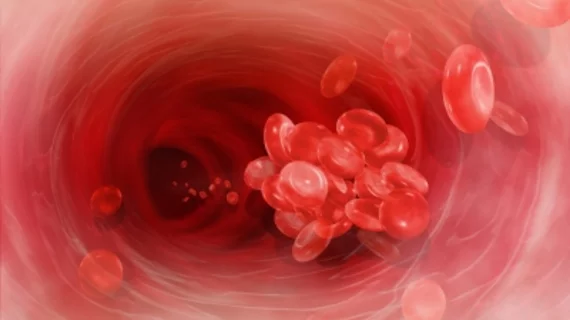Corotid biomarker may personalize treatment in patients with CVD risk factors
Carotid pulse wave velocity measured with ultrafast ultrasound at the end of systole (PWV-ES) may be a better biomarker of carotid stiffness in diabetic patients than PWV measured at the beginning of systole, according to a new study.
In the study, published Dec. 14 in the European Journal of Radiology, Chinese researchers evaluated 317 subjects. Of that total, 98 were volunteers for controls, 105 included patients with normal carotid intima-media thickness (CIMT) for type 2 diabetes (T2DM) group 1 and 114 had thickened CIMT for T2DM group 2. CIMT along with PVW-BS and PVW-ES were measured.
CIMT is an already well established marker for predicting future cardiovascular disease (CVD) events, wrote Fu-shun Pan of the First Affiliated Hospital at Sun Yat-Sen University in Guangzhou, China, and colleagues. However, additional research and clinical trials have found CIMT ineffective for assessing initial CVD events.
Overall, CIMT and PWV-ES were “significantly” higher in diabetes groups compared to the controls. This, the authors noted, suggests PWV is positively associated with CIMT. Using multiple regression analysis, Pan et al. found diabetes to be independently associated with PWV-ES, but not PWV-BS.
When adjusting for baseline covariates, PWV-ES was the only measurement which distinguished carotid stiffness in T2DM group 1 from the controls. Additionally, the association between log(CIMT) and PWV-ES was still significant in controls and T2DM group 1, but not in T2DM group 2.
“The PWV-ES seem to be a better biomarker candidate than PWV-BS to assess the carotid stiffness in diabetic patients,” the authors wrote. “Compared with controls, diabetic patients showed more advanced functional changes than morphological changes despite normal CIMT, whereas the relationship trend was not present when thickened CIMT emerged.”
The authors did note that their study contained limitations. For example, they did not compare ultrafast ultrasound to other imaging modalities. However, the group believes their findings may help better categorize patients with cardiovascular disease health factors.

